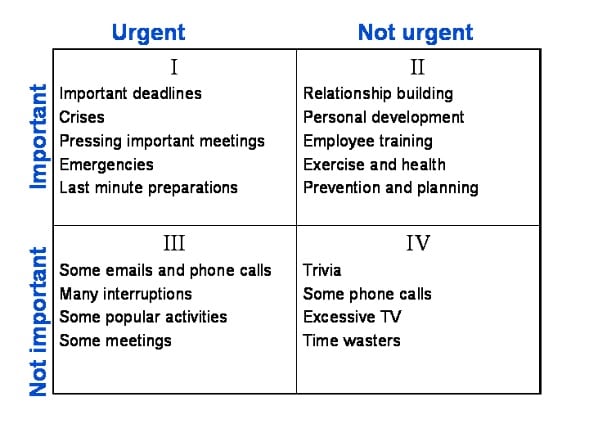Morning
1) First things first: Check JPAS for notifications and Issues
Every Facility Security Officer (FSO) should check JPAS first thing. Not only will your account lock on you if you don’t log in on a regular basis, but this is the best way to maintain accurate records on your cleared personnel. Don’t just log in, make sure you read any DMDC Announcements regarding JPAS or personnel clearances. Check the notifications to determine if there are any actions you need to take. All of this can be done in ten minutes.
Extra: As long as you are logging into things, make it a weekly practice to also log into: ISFD, eFCL, NGA e-Nom, NSA COR or any other sites that will lock if not accessed on a regular basis.
Mid-Morning
2) Get up & Move.
Before you settle into your day, an exceptional FSO will take a few minutes to walk around a bit. Observe the physical security aspects of your building. Checklists being maintained? Signage in place? Security Posters intact? Check in with the managers regarding their current projects and tasks. Ask them about their direct reports/personnel. Any incidents? Any suspicious contacts? Upcoming foreign travel? Talk with the functional support (HR, Payroll, Contracts, Marketing, Logistics, Travel Coordinators) about their work and how it affects your cleared personnel: if employees are leaving or are transferring contracts, tax liens, garnishments, traveling, attending a trade show, new hires … and if it is a small business, one person probably holds all of these positions (bless ‘em!) which would make it even easier to obtain important information. Take a pen and pad with you. Makes notes on items to follow up on from a security perspective.
Mid-Morning through Lunch
3) Do The Work!
This is the meat of an FSO’s day: Knock out your prioritized task list (we will get to that step in a minute), attend meetings, update security spreadsheets (training, foreign travel, DD254 list), plan training, provide security metrics for proposals, respond, react, verify, multi-task, troubleshoot security issues. This head-down method is known in business circles as “swallowing the frog”. Swallowing the frog = get your most productive work done during the first portion of your day and don’t procrastinate until you are rushed to get it done before the days end. This focused approach is the best way to have a strong program and become a subject matter expert.
Don’t have time for this? For those FSOs who wear multiple hats or are task-heavy in other priorities of the business, this is the part of your FSO day what you may definitely want to outsource to a professional. It is an affordable way to remain compliant. For more information, contact us. We will “swallow the frog” for you!
After Lunch
4) “FSO time”
Exceptional FSOs allow themselves a small amount of time each day to do something that will enhance your program: Training your staff on a security process that will save you time in the future aka: “time-multipliers”, test out new technologies (software), training (CDSE, You Tube, RED DART etc.) for innovative ways to train your team and better tools to streamline your processes. Ask your IS Rep (they really do like hearing from FSOs when there is no problem or assessment) if they have form samples, recommended templates or good ideas to share. If they do – share the knowledge with your employees and team mates. Finally, sign up for a CDSE class, attend a local chapter meeting or an online “Brown Bag” training. These things will only enhance your security program.
Mid-Afternoon
5) Check in with your Master Calendar
You should always operate with all the big goals in mind. When was your last inspection? When is your next formal self-inspection? When is it time for annual refresher training? When are your contracts ending? Any new awards at the beginning of the fiscal year? When is your next FSO training? When do you meet with managers? When do you review the DD254s? When is your event (security awareness week, RED DART Briefing, FBI movie day)? All of these things should be on your Master Calendar and reviewed regularly for planning purposes.
Again – if you do not know where to start with this, FSO PRO can assist you with mapping out your security program calendar for the entire year and planning special security-related events that will be both fun and educational for your organization. For more details, contact FSO Pro for help and ideas.
Late-Afternoon
6) Task out your next day …
Or, as I prefer “create a punch list”. Most of us know our immediate priorities – the things that HAVE to get done. Plan to do those first during your “do the work” portion of your day. If it is a huge project and you are likely to procrastinate it because it will take so long – break your big tasks down into manageable chunks. Don’t schedule it all back-to-back. Allow some 15-minute wiggle room between for a pop-up crisis, emergency or unscheduled meeting/phone call. Then prioritize the non-critical items: review your “walk-around” notes from the morning, set up meetings, coordinate events, and schedule training. This will make your daily, weekly, monthly and annual work more productive and keep your security program thriving.

Before you leave
7) Focus on what was done right!
Before you rush home, take a moment to reflect on the days triumphs – even if they are small. Send “thank yous” to your team. Provide kudos and shout-outs to praise employees for any contribution (reporting, completed training, provided security information, etc.) to your security program – especially in front of their supervisors. Thank your leadership for their on-going support and buy-in to the program. Explain what is working and how it is helping the organization. It is okay to note what went wrong but only if you have already determined a solution or a valuable “lesson learned” from the experience.
FSO work can be tedious when things are going well and stressful when things are not going well. Do this to help re-inforce why you do what you do for yourself and to keep the momentum going for your organization. It is okay to note what went wrong but only if you have already determined a solution.
Finally, remember if you or another FSO needs daily help to create a strong, compliant, thriving security program for your organization, contact FSO PRO – we would love to be your extra set of hands!

